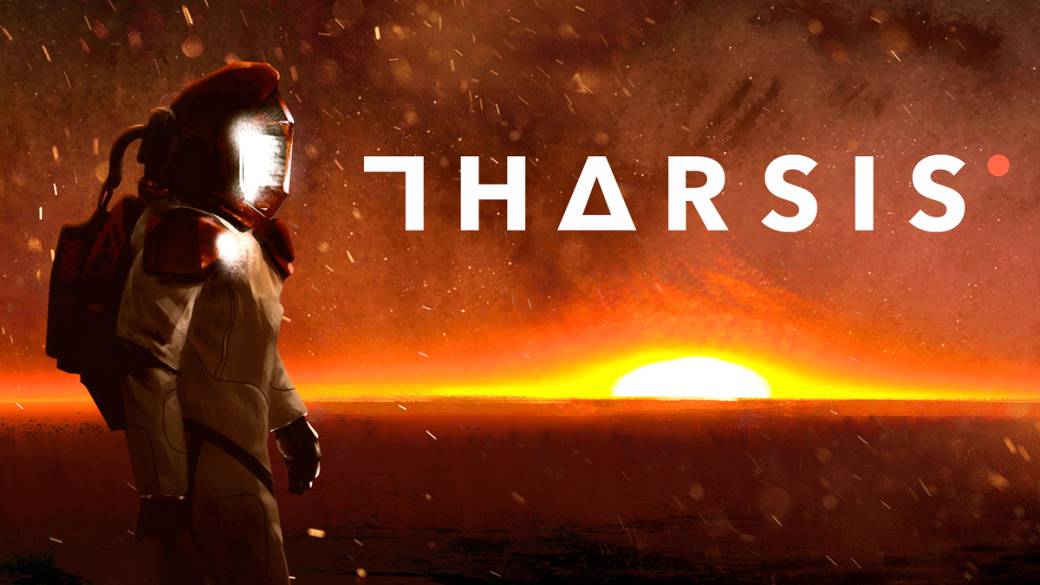
A proposal for survival in space aboard a ship that has only ten weeks to reach Mars with at least one living crew member.
Probably the best that can be said about Tharsis is that it is a tremendously realistic game, to the extent that if any of us were to actually take command of a spacecraft about to come to a fatal end, it would not take long. to arrive. When we say "a lot", we speak of two turns, in our first games, and it is that if Tharsis is already a difficult game, the little he explains at the beginning does not help our experience to be no longer better, but more lasting too.
Our trip aboard the Iktami begins with only three weeks to reach Mars, but as has been usual on such a trip, things practically go wrong at the beginning of it: the two most capable members of the crew die trying to rescue her from disaster, and we were left no less than us in charge of her survival. Spatial survival is a genre that in recent years has had excellent representatives in various ways: from the survival horror Alien Isolation to the more strategic Faster Than Light, if we want to play get out of a trip through outer space alive, we have multiple alternatives, and Tharsis is probably not the best, but it is one of the most difficult.
After the death of both captains we have exactly ten weeks (shifts) to reach Mars with at least one crew member alive, shifts in which all kinds of situations and flaws can occur in the different departments of the ship, some being interconnected . For example, we can send a member of the crew to solve a problem in Flight Control, but before that we will have to send another to put out the fire that the previous one will find on the way.
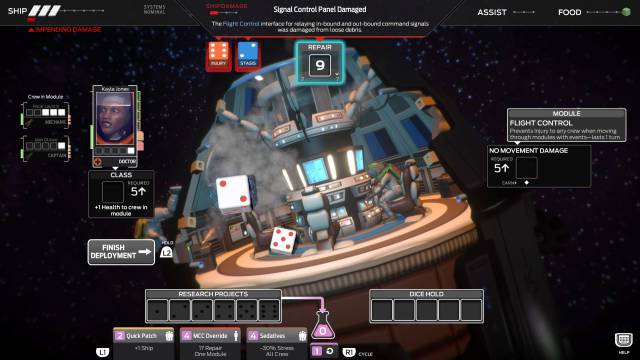
When survival is a matter of luck
Obviously it is not so simple, and each crew member in question will have to have minimal knowledge in the work we entrust to him, something that must be said, it is the ideal situation, and we can find another in which we have two mechanical failures but only one specialist in the field. It can also happen that we have more problems than crew, so we can prepare for the worst, although with a little luck we can solve the ballot.
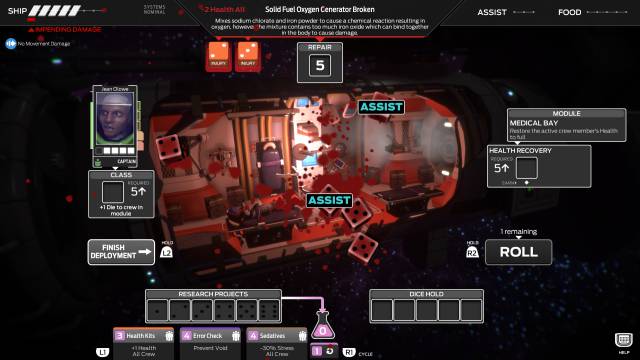
As we have been able to deduce, the ship is divided into several departments: Flight Control, Greenhouse, Procedures, Nursing, Laboratory, Maintenance and Life Support, the latter being where we will send the most compromised crew members to recover dice, which we will talk about later. Basically, as we mentioned earlier, Tharsis is a turn-based strategy game with a significant dose of chance, more important in fact than advisable and that doesn't sit well with you.
How do we solve the different and multiple problems that stand between us and the Red Planet? Once we have the Specialist or the Doctor where we want, the problem in question is quantified with a number that must be reached on the basis of dice rolls, with a limited amount per character. For this reason, we can consider the dice our most precious and most important resource to manage, because after all, and after all, if a decision made is good or bad it will be elucidated by pure chance. The premise of Tharsis is not bad per se, but for how short the experience turns out and more considering that it is a survival video game, leaving success or failure in the hands of a few dice seems rather wrong.
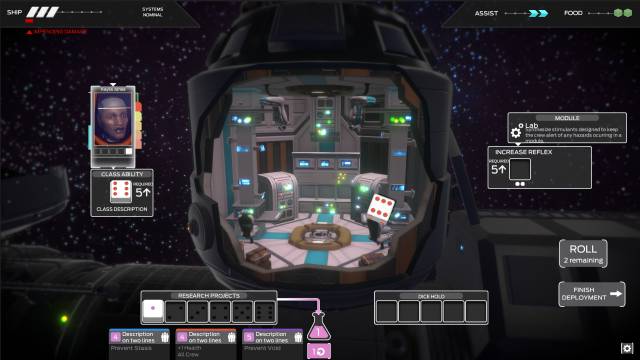
Let's explain this mechanic a little: each fault is represented in a quantity of two figures that must be reached by adding the result of the dice, which, yes, may be of one or more characters. However, it should be borne in mind that it is convenient to leave leftover dice to invest in research projects that help us in future turns, activate power-ups, etc., but… to what extent is this appropriate when a game will last ten turns at most? To top it off, some breakdowns will have restricted figures, that is, if we get a specific number on a die, it will not count towards the final result, which adds one more difficulty to a game that already has many, probably too many.
It is not all a matter of luck, obviously. Each of our astronauts has certain parameters of skills and especially of hunger, which are what dictate their performance when it comes to solving the different -random- problems that can occur after a week on board. Each stay of the ship that remains damaged will add a point of global damage to the ship, and when reaching a limit … in fact, the game is over. In fact, during the first hours we will see the end of the game screen on many occasions, since Tharsis does not have a tutorial that helps much either. It does, yes, but once the adventure begins, the game has a lot of self-learning, we don't know if deliberately, but it is so.
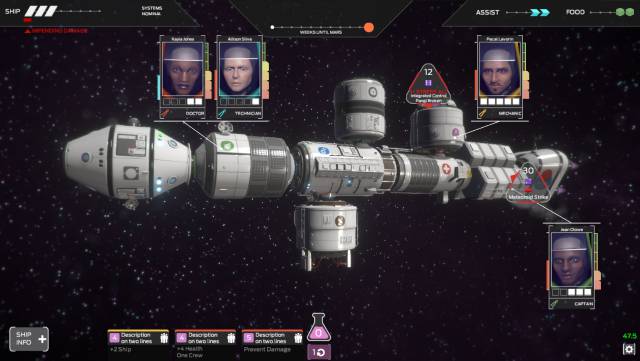
Tharsis also does not stand out for its visual appearance. It is true that with its game concept it is not necessary a dazzling design, but the facial models – you only see the face – of our crew are poor, and the ship does not go beyond the mentioned rooms. Yes, a little more care is glimpsed when we look at each one in detail to discover what problems must be solved.
CONCLUSION
Tharsis is a video game that due to a few bad ideas can end the patience of the most painted. The excessive dependence on luck causes frustration to be generated in case of not achieving the objective, and at the same time, it does not produce satisfaction if we achieve it, since the influence of our good decisions is questionable for the benefit of very important dice throughout the game. In fact, it is the most important mechanic. In short, it is a game to love or hate, but in the hours played for this Reviews it has made it very difficult for us to love it, the truth be told.
THE BEST
- The idea is not entirely bad. In fact, it is original.
- The strategic part is demanding with the player.
WORST
- Visually simple, even feote.
- Frustration in failure, dissatisfaction in success.
- It is short, and once finished, it gives no reason to give it another spin.
- Excessive dependence on dice and chance.
Mediocre
It could be but it has not been and after spending a few minutes with it it will be filed on the shelf to never play it again.
